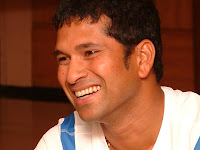"Did the Antrix-Devas agreement on S-band spectrum go as far as it did because many individuals in the know chose not to intervene?"
The fashion in which valuable S-band spectrum was allocated to a single private company for an extended period of time, and the way in which it was sought to be implemented were highly questionable. Whether, and to what extent, higher authorities such as the Space Commission and even the Union Cabinet were informed of the deal and its implications is murky and unclear.
The Hindu : Opinion / Op-Ed : Delhi, we have a problem
A preliminary estimate prepared by the CAG last year had suggested that the spectrum allotted to Devas could have been worth as much as Rs.2 lakh crore. According to ISRO, the amount payable by Devas over a 12-year period was just $300 million (~ Rs.1,500 crore).
It is difficult to see how the Space Commission could have been entirely in the dark about the deal with Devas. While individual accountability can and should be fixed, it is obvious that there was a system-wide malfunction.
The question is how many individuals up and down the government and Space hierarchy knew what was happening but chose not to intervene.
